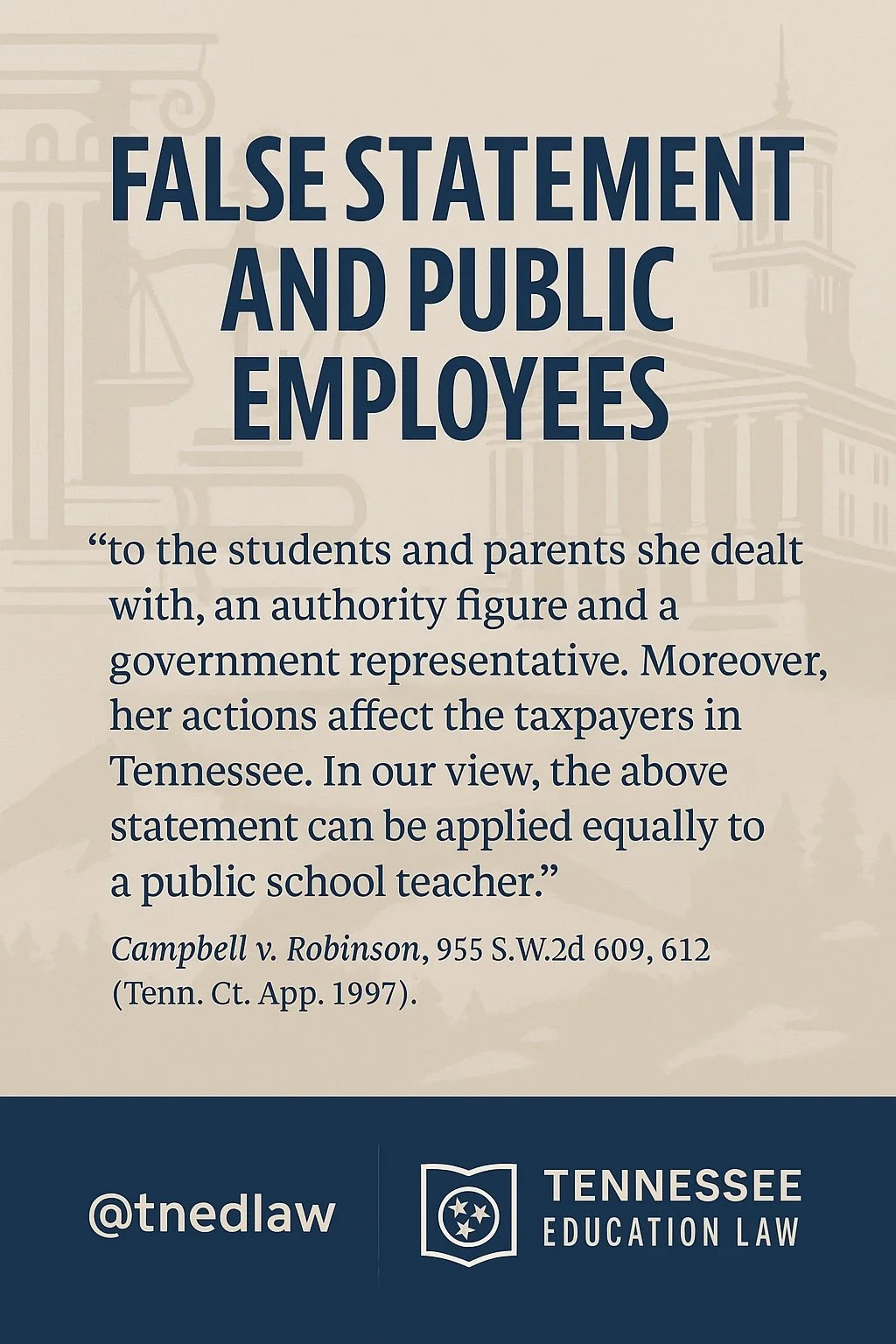
Legal Issues Facing Students and Educators
“Let’s Go Brandon” in the Classroom: When Political Speech Crosses the Line
When a Michigan middle school banned students from wearing “Let’s Go Brandon” shirts, the dispute quickly turned into a First Amendment test case.
For Tennessee educators, the message is clear: political speech is protected — profanity is not.
This new decision gives schools a defensible line to follow when student slogans blur the boundary between expression and civility.
Can Schools Ban Parents From Campus?
Tennessee law gives schools the authority to ban parents from campus when safety or order is at stake. Under T.C.A. § 49-6-2008, principals may remove individuals who are “improperly on the premises,” and violations can even rise to criminal trespass. But that authority has limits. Federal courts, including the Sixth Circuit, have ruled that parents cannot be banned simply for criticizing school officials—critical but non-threatening speech is protected under the First Amendment. Schools also face a special exception under federal special education law: the IDEA guarantees parents a seat at the table for IEP meetings, even if a trespass order is in place, requiring schools to provide remote participation options. The line between protected speech and unprotected conduct—like assault or repeated disruption—is the key legal battleground. Schools that act on clear threats are on firm ground; schools that retaliate against speech risk liability.
False Statements and School Employees
False statements on social media can seriously damage Tennessee teachers, but defamation suits here face steep hurdles. Tennessee courts classify teachers as public officials, meaning they must prove actual malice—that the poster knew the statement was false or acted with reckless disregard for the truth (Campbell v. Robinson; Finney v. Jefferson). Teachers must also show real injury, such as reputational harm, emotional distress, or financial loss—anger alone isn’t enough. With strict deadlines (one year for libel, six months for slander), swift action and evidence preservation are critical. Cease-and-desist letters or retraction requests may help before filing suit. While difficult, litigation remains an option when actual malice and clear harm can be proven.
Can Teachers Be Fired for Off-Duty Speech?
Public school teachers do not give up their First Amendment rights, but those rights are limited. Under the Pickering-Connick test, teachers’ speech is only protected if it addresses a matter of public concern and does not cause substantial disruption. In today’s digital age, off-duty social media posts can quickly go viral, leading to parent complaints, media attention, and even safety concerns. Courts have consistently upheld discipline—including termination—when such disruption occurs. For private school teachers, the protections are even slimmer, as most work under at-will contracts. The takeaway: off-duty speech is never fully off-duty for educators.
Amish Exception
There is a large Amish community where I live. When traveling in that portion of our county, you need to look out for horse drawn buggies and the occasional horse manure. The Amish community provide a variety of goods to county residents from produce to furniture and the community at large is thankful for their contributions.
U.S. Supreme Court Rules in Favor of Student in Social Media Case
Public school officials generally cannot punish students for off-campus social media posts, the U.S. Supreme Court ruled in a case involving a student punished for venting her frustration on Snapchat for not making the varsity cheerleading squad.
Prayer During School
Prayer in school has always been a controversial topic. Throughout the last century, public schools have transitioned from mandatory bible readings to a prohibition on public prayer at the beginning of a graduation ceremony. In this article, I plan to cover a brief review of landmark cases, including TN law, and a summary of the current limitation of prayer in public schools.






